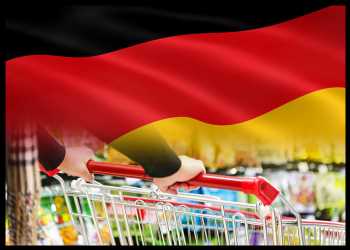
Is An End To Germany's Inflation Worries Near?
In what could be seen as a temporary relief, Germany’s headline inflation eased sharply at the end of 2022, thanks to lower energy prices and the government’s efforts to share the energy bill burden of the people. However, economists said the biggest euro area economy is set to reel under the pressures of high inflation for a long time, which in turn is set to keep the European Central Bank on its toes as policymakers continue with interest rate hikes.
Consumer price inflation slowed at a faster than expected pace in December as the rate of increase in energy prices slowed sharply after the government took relief measures, preliminary data from Germany’s statistical office Destatis showed Tuesday.
The consumer price index rose 8.6 percent year-on-year following a 10.0 percent rise in November. Economists had expected headline inflation to slow to 9.1 percent.
Energy inflation sharply eased to 24.4 percent from 38.7 percent in the previous month.
The federal one-off payment in December to cover the monthly installment for gas and heat had a downward effect on prices, Destatis said. Germans had witnessed energy and food prices surge since the start of the war in Ukraine.
Commerzbank estimated that the damping effect of the government support on energy prices would have lowered the inflation rate in December by around 1.2 percentage points.
Excluding energy and food prices, core inflation climbed further in December – from 5.0 percent to an estimated 5.1 percent, Commerzbank added.
“Inflation is likely to increase again in January because the government will not once again take over the payments for gas and district heating,” Commerzbank Chief Economist Jorg Kramer said.
“However, inflation is unlikely to return to double digits…because the statisticians will take the electricity and gas price brakes into account in the price statistics from January.”
ING economist Carsten Brzeski also reckoned that inflation may have reached its peak and is unlikely to return to double-digits.
That said, the pace and size of the inflation retreat in the course of the new year remain highly uncertain, the economist added.
“For the ECB, today’s drop in German headline inflation is another reminder that an energy price shock can actually turn around almost as quickly as it has emerged,” Brzeski said.
ING expects the ECB to hike interest rates at the next two meetings by a total of 100 basis points.
If energy prices have remained at their current levels by March, when the new set of ECB Staff macroeconomic projections is due, the ECB will have to revise down its own inflation forecasts, and calls for at least a pause in the current hiking cycle will grow louder, Brzeski said.
Destatis data showed that food prices rose 20.7 percent annually after a 21.1 percent increase in November.
Services costs grew 3.9 percent after a 3.6 percent rise in the previous month. The rate of increase in rents was steady at 1.9 percent.
The CPI fell 0.8 percent from November, when it decreased 0.5 percent. Economists had predicted a 0.3 percent decline.
The harmonized index of consumer prices, or HICP, rose 9.6 percent year-on-year following an 11.3 percent increase in November. Economists had forecast 10.7 percent inflation.
The EU measure of inflation decreased 1.2 percent from the previous month, when it remained unchanged. Economists were looking for a 0.5 percent fall.
In 2022, the annual average CPI inflation was 7.9 percent and HICP inflation was 8.7 percent.
Commerzbank expects the annual average inflation to fall to 6.5 percent this year and ING forecast a rate around 6 percent.
Destatis is set to release the final results for December CPI on January 17.
Source: Read Full Article